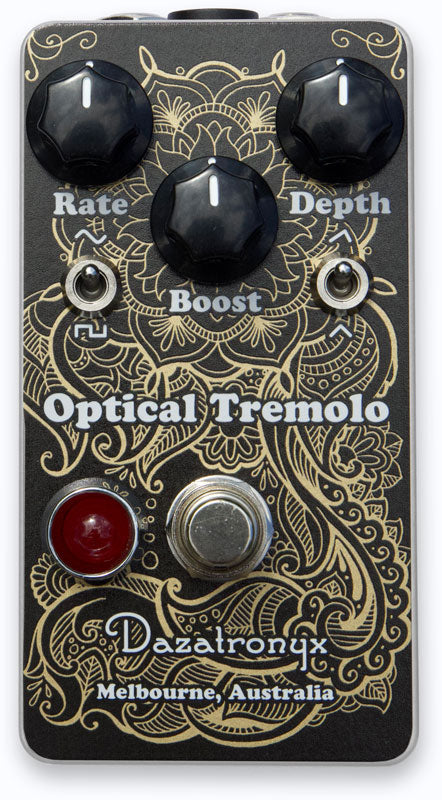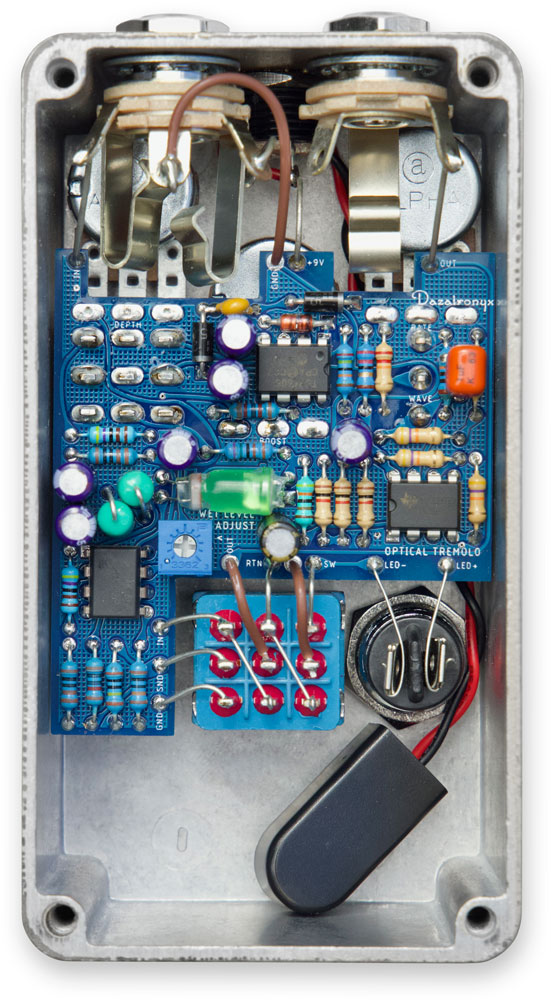DAZATRONYX
DAZATRONYX OPTICAL TREMOLO EFFECTS PEDAL
DAZATRONYX OPTICAL TREMOLO EFFECTS PEDAL
Couldn't load pickup availability
OPTICAL TREMOLO
My tremolos are easily my favourite circuits, and have occupied more of my design time than anything else. This was my first unique effect circuit design from scratch, which I started in high school. Development took over a decade before I was happy with the way that it sounded and functioned.
By shining a fluctuating light against a photo-sensitive field, this tremolo uses all-analog photocoupling to restrict and modulate the output volume. Careful waveform construction, with non-linear shaping, creates an organic and lively volume fluttering, far divorced from sounding like a basic electronic waveform function. The square wave is similarly processed, so as not to sound like a computerised chop.
Symmetry switch: This toggles between two modes which are subtly different. The asymmetric mode (up) has a slightly uneven rhythmic pattern - think of the first spinning liquid can tremolos. I feel this mode is sweeter when the playing tempo is not matching with the tremolo rate.
The symmetrical mode (down) has an even 360 degree spin, with a very slightly deeper scoop. It has a classically pronounced tremolo shape - think of a rotary speaker.
I generally prefer to use the asymmetrical mode for the square wave, as the signal stays 'on' longer, with less gap time. The symmetrical mode (down) square wave will give more perceived depth.
This circuit operates with in a split rail power supply for increased headroom, and has a very low noise level.
As with all of my tremolo models, you should expected perceived unity volume with all depth and rate settings, without having to make any manual volume adjustments. The wet level can be adjusted internally by a trimpot.
Share




